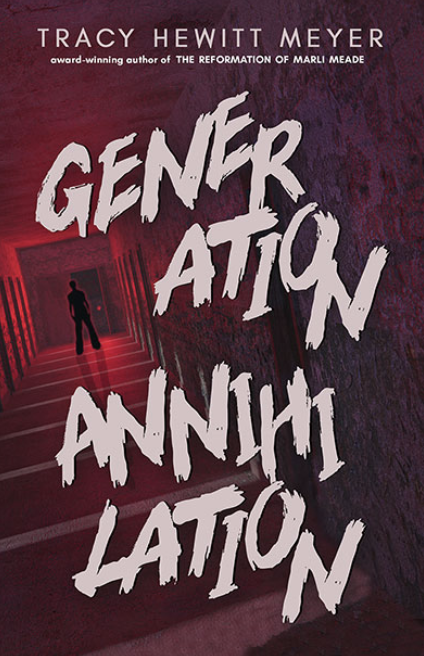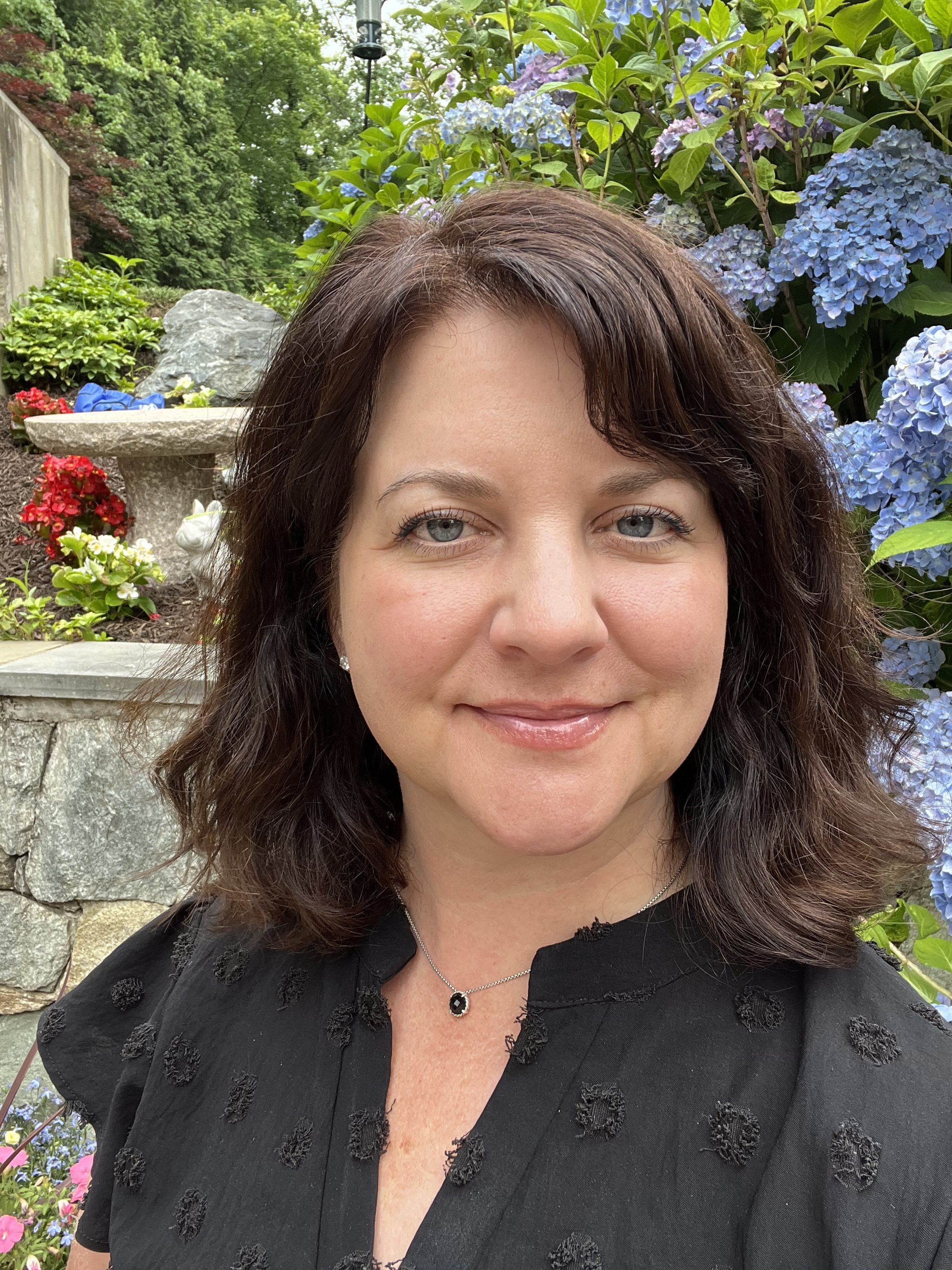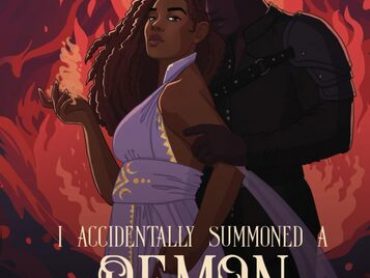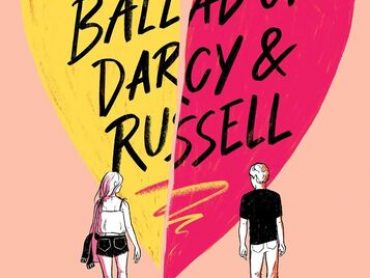Tracy Hewitt Meyer is the author of Generation Annihilation. Generation Annihilation follows seventeen-year-old Shaun Treadway. The novel explores secrets and mystery. YEM was able to speak with Tracy about where the idea for the book came from, what the writing process was like, and advice for those who want to become writers one day.
Young Entertainment Mag: When did you first know that you wanted to be a writer?
Tracy Hewitt Meyer: I love stories—books, movies, tv shows, listening to others tell stories about their lives and/or experiences—and I always have. When I was young, my mom would take me to the library, and I always left with several books. When I got a little older, I still went to the library, but then also started frequenting bookstores. I remember heading to the counter with my arms full of books and my mom’s look of shock each and every time. She usually let me buy all my interests, but sometimes she just said enough was enough.
Stepping into writing was a natural progression.
The first time I wrote actual fiction was in my AP English class in high school. I wrote two short stories and still remember the exhilaration (and terror) of sharing my work.
In college, I majored in English with a creative writing focus, and realized then how incredibly difficult being a writer and writing a solid, interesting story could be. Not sure how to find work as a writer after getting my degree, I spent a year working in the Senate, went to graduate school to obtain a Masters in Social Work, then worked as a social worker/therapist for several years. I always felt that pull toward writing, but couldn’t figure out how to take that next step.
About ten years ago, though, I was home after my third child was born, and I started to feel the undeniable and uncontrollable urge to write. After a year or so of teaching myself how to write a full-length novel, I wrote A Life, Redefined, my first YA novel. It won the RONE award for Best YA Fiction, and I haven’t stopped writing since. I still work as a therapist, but I also write. I’m fortunate to be able to pursue two of my passions.
YEM: Where did the idea for Generation Annihilation come from?
Tracy: The Trans-Allegheny Lunatic Asylum in Weston, West Virginia, is the inspiration for the setting of the novel, and that’s also where the story idea came from. I was in the middle of a tour of the facility about four years ago, and was standing on a balcony overlooking a ballroom. The tour guide was giving a history of the room and what it was used for when the asylum was a working hospital. Nothing in the asylum’s history led me to the plot of Generation Annihilation, but the idea took root at that moment, in that asylum.
YEM: Did you enjoy writing a book that was more on the dark/ creepy side?
Tracy: I gravitate toward the dark and creepy in general. I like cemeteries, mortuary makeup and the preparation of the dead, the paranormal, and ghost stories—things along those morbid lines. I can’t say why exactly. Something about the macabre ignites interest and creativity in me, and makes developing a story easier and far more entertaining than anything along the sweeter lines. I don’t get bored for even a second writing dark and creepy. If I start to get bored, I know I need to push it further.
Even in The Rowan Slone Series, though not paranormal or thriller material, I go dark into the human psyche and behavior. Then in The Reformation of Marli Meade, I really stepped into the more thriller genre with cults, snakes, a sinister preacher, suspense, etc. I think I was hooked on thrillers at the end of writing that book.
Generation Annihilation is different than anything I’ve ever written, but goes even further into thriller territory, and even dabbles in horror elements. And I loved every minute of writing it, partly because the research was so incredibly interesting. And not once did I get bored with the material.
YEM: What was the writing process like?
Tracy: Long. There were more moving pieces to this novel, more ends to tie up, more secondary stories to flush out than my other novels. It definitely made me push my creative boundaries. If my headspace wasn’t open to creativity, I wouldn’t push it and would walk away. Sometimes I put the novel aside for weeks, but when I returned to it, I was always ready, and far more productive and creative.
When I’m in the zone, I’m up at 5:00 am, and writing by 5:30, coffee brewed, Leonard, my Frenchie, by my side. I don’t need music in the mornings. The quiet is enough. Sometimes in the afternoon, music helps, and I like lyrical music like Hayley Westenra or Celtic Woman. Sometimes I write in the car, at Panera, in the library. I can be all over the place, and not as disciplined as many authors, but honoring my creative flow is what works for me.
YEM: What is something you learned about yourself as you wrote this book?
Tracy: I learned that I can step out of my comfort zone as a writer and still write a readable novel.
Generation Annihilation is different from my other works because, for starters, the main character is male. But the story took more creative stretching than I am comfortable with, or have experience with. When writing my other novels, I could see Rowan and Marli’s stories unfolding in my mind’s eye like a movie. As I wrote those novels, it was almost as if I was living their lives, their story lines were so real to me. With Shaun Treadway, there was distance between me and him because of his sex. But the plot was more complicated and intricate, forcing me to push myself.
YEM: Did any part of Generation Annihilation inspired by your real life?
Tracy: This is a tough question because it dips its toes into my personal life, and further than that, difficult times in my personal life. So, let’s just say that yes, parts of it were inspired, but loosely inspired, by my real life, and the novel is one hundred percent fiction.
The mental illness and human behavior aspect is simply something I’m interested in, which is why I also work as a therapist. Why humans do what they do is infinitely fascinating to me.
YEM: What do you hope your readers take away from Generation Annihilation?
Tracy: I hope that this novel makes readers think; makes readers ask, “Could this actually happen?” It’s a thriller with horror elements, so I want readers to really ponder that question; to ponder that in today’s modern would/could this happen? I hope it elicits conversation, and excites a certain amount of fear in the reader.
Then, as with all my books, I hope the reader takes away the importance of resilience. Of never giving up, no matter how insurmountable the challenges may seem. If there is even the tiniest blip of hope, everything can change.
YEM: What advice do you have for someone who wants to become a writer?
Tracy: Same as every other writer, I’m sure, and that is:
Write Write Write.
And read. Read. Read.
Take classes. Join writing organizations. I cut my teeth, so to speak, on romance. True romance novels have a formula that should be followed, and learning to write romance helped me understand story arc. I joined Romance Writers of America, and attended countless workshops. The knowledge I gained was invaluable. There are many writing workshops and organizations out there, so I suggest joining one and becoming involved. You’ll be surrounded by writers and start to learn how to write and start to identify as a writer.
YEM: Is there a type of genre you would love to one day write?
Tracy: Historical romance would be so fun to write. I don’t think, though, that I have the skills to write accurate historical fiction. I need a certain amount of allowance for creativity in my novels to flush out my ideas. Sticking to historical fact, even if it’s geography, dialect, or who is ruling the country when, as much as is needed in historical fiction would not be something I could excel at. Maybe I need a writing partner who is good with research and that part of the writing process, and I’ll go through and add the creativity and romance. That sounds like a perfect match. Anyone interested?
YEM: Is there someone that you always run your ideas by besides your editor?
Tracy: I don’t. I flush ideas out in my head. Back when I first started writing, I had critique partners, and would run ideas by them. Now, I just do it all internally. I’m not a talkative person, and there can be a disconnect between what goes on in my brain and what comes out of my mouth. The line between the two is not always fluid, so explaining my ideas verbally doesn’t work well for me. Writing is a much easier form of communication for me, be it texting, email or writing a novel. I have an editor read my completed novel, and we go through any changes during the editing process.
YEM: What is a quote or scene from Generation Annihilation that is your favorite?
Tracy: Ooh, I like this question! I’d have to say two scenes are equally my favorite, and they both include fire. It’s no secret that Shaun Treadway burns down his childhood home with his stepfather inside at the beginning of the book. I loved writing that scene, describing the smell of fire, the sound of burning wood, the sight of smoke dancing up the windows. Then at the end, there is another incident with fire—I won’t give anything away, but let me just say that writing that scene was very satisfying. So, beginning and ending fire scenes are my favorites.
YEM: What do you have planned next in terms of writing?
Tracy: I’m finishing final edits on book #2 in The Blackthorn Peak Duology—Generation Retaliation. It’ll come out in September, 2024. And I’ve started work on Death and Daisy McDermott, a young adult novel about a teen girl who takes over her aunt’s mortuary business when her aunt dies. Of course, no one knows her aunt has died. Intrigued? Stay tuned…
Thanks for having me!





